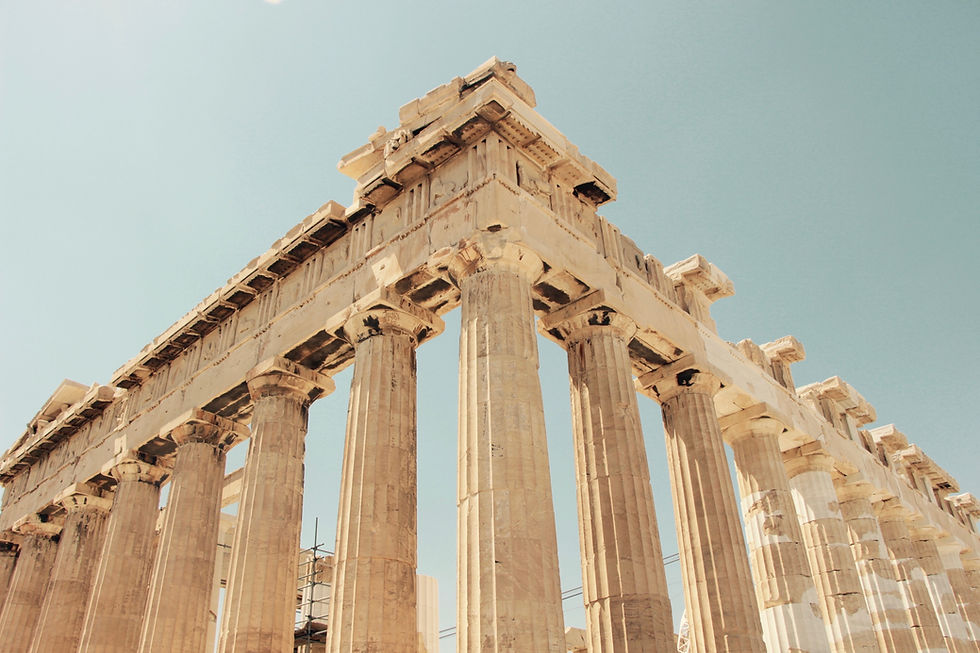"...I know nothing."
- Anne van der Giessen

- May 30, 2022
- 2 min read

“I know one thing; that I know nothing.”
Imagine this statement coming from one of the earliest philosophers, Socrates.
A man sentenced to death by the Athenian government after he was charged with two counts of impiety, that is, lacking reverence for sacredness, as follows:
1) Practicing the maieutic method, a method of teaching through asking a series of questions around one's ideals until they find the very fabric of their convictions to be false, and are then forced to revise them.
2) Introducing new gods to the city folk.
On the 'maieutics', you can imagine the distress caused.
This caused nuisance for both the individual and the politicians, especially when many of the ideals and convictions of the people as a collective might be put their intentionally, whether that be through religion, myth, culture, government, institution or some other body of organised thought.
No one likes to be wrong. And being forced to make yourself wrong by answering questions is bound to feel a little abrasive internally!
It is said that Socrates turned to this method after an Oracle stated that he was the wisest man in the world. He sought to disprove her by cultivating wisdom in all who he met through his intense practice of the maieutic method.
He would question with the intent for wisdom to emerge.
As for the "new gods", this stems from Socrates having spoken openly about being in connection with a higher spirit inside of him. One might say his genius, his daemon, his guardian angel. And he allowed this voice to guide his life's work... until his eventual death as a result of his activities.
As a coach, two of the main things I do with my clients is ask them bigger questions so they get to challenge their ideals and convictions, updating them or establishing more useful ones, and secondly, helping them connect to their inner wisdom, inner guide, so that they can have a stronger sense of personal authority and direction in how they move through the world.
The coaching industry would never have survived in the era of Socrates!
Ironically, Socrates' commitment to *not* knowing created the birthplace of Western philosophy and modern wisdom as we know it today. Thats the Socratic paradox. Is there any better tale to tell when it comes to the benefits of a beginners mindset?
We might wish happier endings for Socrates, however if you know his story or take a minute to look it up, you will find that he had two options available at the hands of the polity - one was exile, the other to drink the poison that would end his life. He chose the latter. That was to be his legacy.




Comments